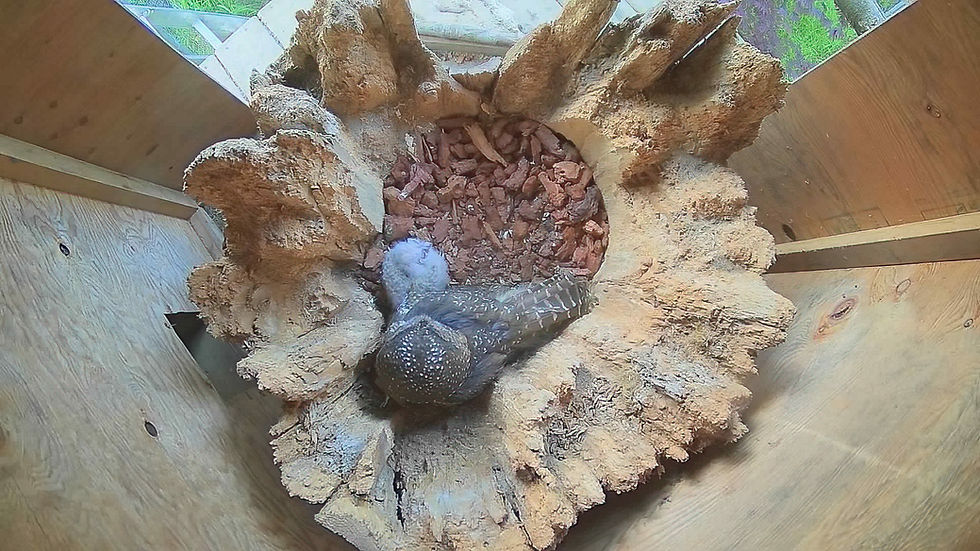Our First Ever Co-op Student
- Oct 10, 2023
- 2 min read
Updated: Oct 19, 2023
Each year we welcome interns to the Northern Spotted Owl Breeding Program (NSOBP) to help with all of the exciting tasks of breeding season. Typically these interns are recent university graduates keen to get their careers started in conservation biology, but when one of our long-time volunteers asked about the possibility of the internship becoming part of the University of British Columbia's Forestry Co-op Program, we jumped at the chance!

Kayleah had dedicated over 450 hours of volunteering over four years and we were all excited to welcome her as a co-op student and see her grow in this new role. Hear about Kayleah's experience below!
As a Forestry undergrad and co-op student at the University of British Columbia, I have been working as an intern at NSOBP for my first, second, and third co-op work terms. This means I can gain valuable work experience before finishing my degree. The co-op program coordinators helped me write a cover letter, resume, and practice interviews. Once in the intern position, I had a few assignments to complete such as setting learning objectives for each term, writing a story about my role, creating a poster and presentation, and a midterm and final evaluation.
I found setting my learning objectives with the facility coordinator, Jasmine, valuable. Having clear expectations of what my role was and what I would learn was key in understanding how the internship would go.
My learning goals were:
Learn the typical behaviours of rats and mice by reading material and learning from supervisors to recognize and identify normal or abnormal rodent behaviours.
Learn the process of egg incubation, monitoring growth and development, and ideal environmental conditions for chicks. These skills will aid in the upbringing of new owls during the breeding season and contribute to the species’ population.
Learn the meticulous process of hand-raising newly hatched chicks including monitoring behaviour, preparing food, feeding, health exams, processing fecals, and maintaining a clean environment.
Learn about the decision-making process to evaluate potential release candidates such as their weights, general health, and hunting abilities.

Making my poster and presentation about my co-op work term was not difficult as I had so much to show and discuss about the breeding program and my role. Adding a land acknowledgment into my projects was new to me, but working at NSOBP showed me the importance of incorporating indigenous knowledge with conservation. I am one step closer to better understanding how to pay my respects to the communities I work in.
My midterm and final evaluations gave me the opportunity to reflect on my contributions to this important conservation program. To look at what I have been able to achieve as part of the NSOBP team has been rewarding and I am overwhelmingly proud to help the owls and make the project run smoothly. I am glad co-op gave me the opportunity to reflect on my internship and see it as more than just a job, but also a well-rounded, life learning experience.
This article was originally published in our 2023 Newsletter.








